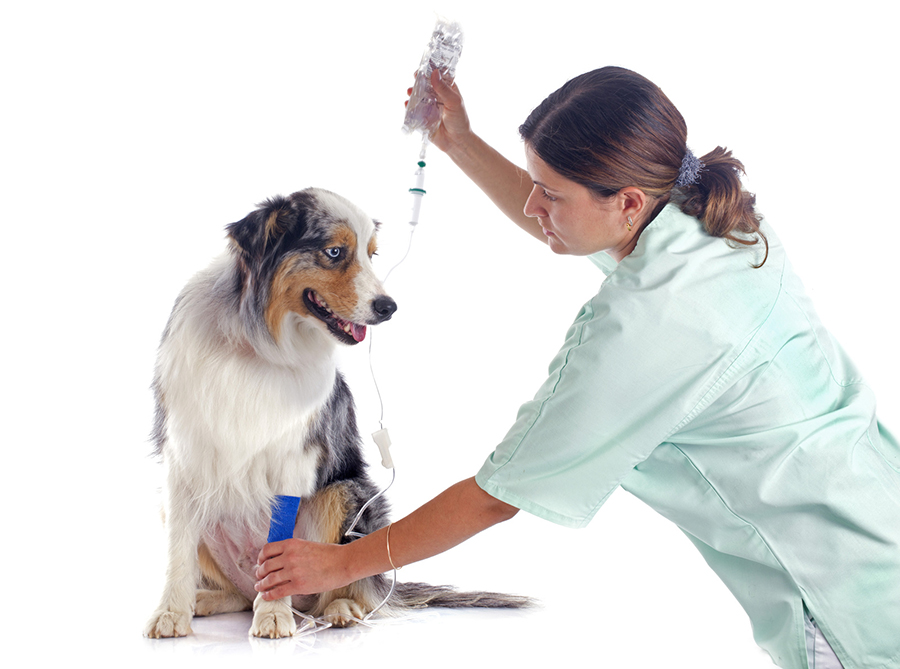Pancreatitis in Dogs
What is pancreatitis?
The pancreas is a small organ located near the stomach that produces enzymes that are required for proper digestion of food. Pancreatitis is a disease caused by inflammation of the pancreas. Pancreatitis is usually a sudden onset disease but more chronic cases may also be seen.
Pancreatitis occurs when the enzymes that are produced by the pancreas leak out of the granules they are contained in and enter the pancreatic tissue and surrounding fat. In this area the enzymes begin to digest the pancreas leading to abdominal pain, inflammation, vomiting, depression and fever.
Which dogs will be at risk?
The actual causes of pancreatitis are still very obscure even though extensive research is still being conducted. It is known that middle aged, obese dogs fed diets high in fat and receiving little exercise are at greatest risk of contracting the disease.
Treatment
Part of the initial treatment involves a blood test to confirm and diagnose the disease. Once the diagnosis has been made a dog with acute pancreatitis requires immediate hospitalisation and very aggressive therapy to stop the damage that is occurring to treat the shock. It is also very important at this stage to stop the intake of all oral fluids and food.
What aftercare is required?
Once your dog has recovered from the disease he/she will require some care at home. This will usually involve a course of antibiotics and dietary management.
Your pet may be placed on a specialised prescription diet that is formulated to be particularly low in fat. Some dogs find these prescription diets unpalatable and in these cases some commercial canned food may be added to make them appetising.
If you prefer to feed a home cooked diet then it is important that this contains no fat or is very low in fat. Boiled chicken with no bones or skin, mixed with a variety of vegetables and pasta or rice, will provide a balanced low fat diet. It is essential that you don’t feed your dog any table scraps or treats as these may contain a lot of fat.
Regular exercise has been shown to reduce the risk of this disease, so ensure your pet receives adequate daily exercise without fail!
You need to keep a close eye on your dog as the disease may re-occur or other diseases may be caused as a result of pancreatitis. The signs you should watch for are; increased thirst, lack of appetite, diarrhoea, vomiting, and abdominal pain. If you have any concerns at any time about your dog’s condition then feel free to contact the hospital.
It is recommended that a follow up blood test be performed in 10 days time to evaluate whether ongoing damage is still occurring. This test is a lower cost than the first test and will also tell us if continued therapy is required.
Special times of concern:
Recurrences of pancreatitis commonly occur when friends come to stay, and they are not aware of your pets problem. So take care to warn them not to feed your dog any food they shouldn’t. Barbecues are also a problem as guests can’t resist giving the dog the fat off the meat.




